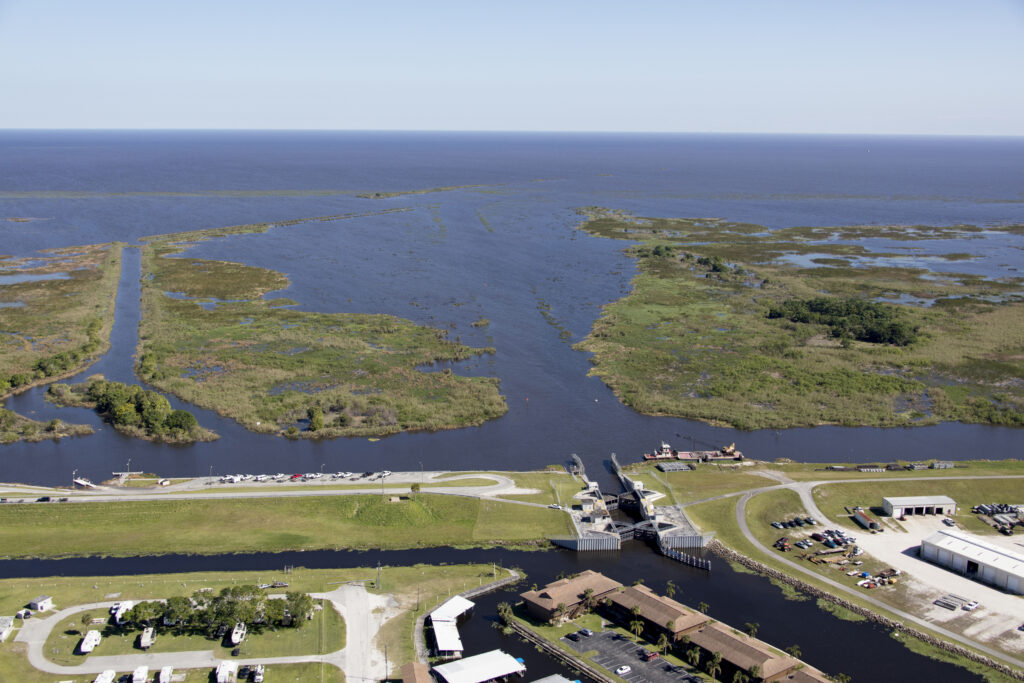By Ryan Rossi, South Florida Water Coalition
While it’s undeniable that Lake Okeechobee is critical to South Florida communities, recent decisions related to its management have raised questions about future allocations in water supply. Lake levels, discharges, flow, storage and use all attract varying perspectives on laws, implementation and long-term solutions for the many stakeholders who rely on the lake’s water supply.
Critical to meeting South Florida’s future water needs is the development of the Lake Okeechobee System Operating Manual (LOSOM), the new guide for the Army Corps of Engineers as to how it will govern the lake’s water levels given all of these variables. Establishing certainty from state and federal water managers is paramount. While initially touted as “flexible and balanced,” the current draft plan falls short of what South Florida requires to ensure water supply needs for over 7 million residents, local businesses and our coastal environment.
The last few years provide some insight into the inconsistencies all of us can expect.

In 2022, Florida experienced a brutally hot and dry summer, and lake levels had dropped to shortage conditions. Hurricane Ian — which spawned late in the season — provided months worth of rain within a matter of hours, along with billions of dollars in damages and more than 150 lost lives. A potential water shortage disaster was spared only at the hands of another disaster — a gamble our area can expect every year under this new management plan.
Fast forward to this year, and conditions have been quite different. Unlike a few years back when water levels were on the lower side, this year, Lake Okeechobee water levels are higher than almost anyone is comfortable with during a wetter El Niño winter. As it turns out, “flexible and balanced” is turning out to be as challenging as the unpredictability of our weather patterns.
Attention is rightly being raised on how to best proceed for our communities and stakeholders.
One component that will determine the future of South Florida’s water supply involves the “savings clause” adopted by the federal government in 2000. Water users in South Florida, including farmers and municipalities, have challenged recent Army Corps actions that assume a lower water level in federal restoration projects — a clear violation of what a bipartisan group of members of Congress adopted more than two decades ago. Simply stated, the savings clause attempted to ensure that no state or federal actions could diminish the water supply promised to all of us back in 2000, when Congress passed the Comprehensive Everglades Restoration Plan.
Since then, the savings clause has been core policy for our region — a legal protection ensuring that area stakeholders are guaranteed water supply rights regardless of external conditions or management plans. Stakeholders extend well beyond agricultural interests and include the entirety of our coastal communities — our residents, businesses and utilities — and help protect against climate impacts by ensuring enough water to recharge our freshwater aquifer. Doing so is a useful tool to make sure drinking water is not only available, but also safe and protected.

South Florida must depend on a stable water supply while maintaining drought protections for residents and southerly flow to help replenish the Everglades when needed. This is a predictably sensible policy — especially in a time when our weather becomes more unpredictable.
The key to our collective success is balancing solutions that factor in various viewpoints and lead to logical solutions that are likely to be very different from one year to the next.
Getting lake management wrong one way or the other could cripple the water supply to our residents, destroy local businesses and create further damage to our changing environment. South Florida deserves better — and time is running out to get it right.
Ryan Rossi is executive director of the South Florida Water Coalition. This opinion piece was originally published by the South Florida Sun Sentinel, which is a media partner of The Invading Sea.
If you are interested in submitting an opinion piece to The Invading Sea, email Editor Nathan Crabbe at ncrabbe@fau.edu. Sign up for The Invading Sea newsletter by visiting here.



